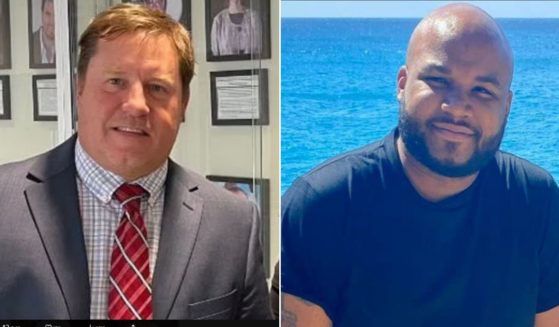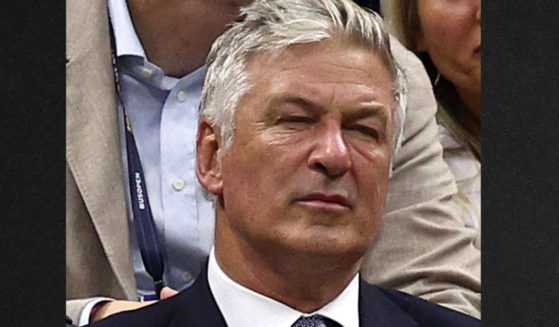Cy Young Award Winner and Hall of Fame Pitcher Dies at 84
Baseball Hall of Famer and two-time Cy Young Award winner Gaylord Perry, a master of the spitball who wrote a book about using the pitch, died Thursday. He was 84.
Perry died at his home in Gaffney, South Carolina, at about 5 a.m. Thursday of natural causes, Cherokee County Coroner Dennis Fowler said. He did not provide additional details.
The native of Williamston, North Carolina, made history as the first player to win the Cy Young in both leagues, with Cleveland in 1972 and San Diego in 1978 just after turning 40.
Perry went 24-16 in his debut season with Cleveland after 10 years with the San Francisco Giants.
He was 21-6 in his first season with the Padres in 1978 for his third and final 20-win season.
“Before I won my second Cy Young I thought I was too old — I didn’t think the writers would vote for me,” Perry said in an article on the National Baseball Hall of Fame website. “But they voted on my performance, so I won it.”
Perry, who pitched for eight major-league teams from 1962 until 1983, was a five-time All-Star who was elected to the Hall of Fame in 1991.
Many paid tribute to him on social media.
Saddened to get the call that Gaylord Perry passed away this morning. A great friend and a great teammate. My thoughts go out to the Perry family. We’ll miss you Gaylord. pic.twitter.com/u7I0IUQALE
— Fergie Jenkins (@fergieajenkins) December 1, 2022
We lost a great competitor today. Gaylord Perry. Faced him when he was going for #300. Every pitch dropped about a foot…mmmm. Was a good guy and we shared some great stories. #RIP pic.twitter.com/UVUG8bm9Bf
— Fred Lynn (@19fredlynn) December 1, 2022
RIP Gaylord Perry – Here he is talking about how in ’64, #SFGiants manager Alvin Dark said that there’d be a man on the Moon before he hit a HR. In ’69, just a 1/2 hr. after Apollo 11 landed on the Moon, Perry hit his first HR! #MLB #Baseball #Legend pic.twitter.com/cvbJmGj7cj
— Baseball by BSmile (@BSmile) December 1, 2022
We are saddened by the passing of Hall of Fame pitcher Gaylord Perry. Our sincere condolences are with Gaylord’s family at this difficult time. pic.twitter.com/AhS7M7e2TG
— Texas Rangers (@Rangers) December 1, 2022
Gaylord Perry’s legacy will live on forever.
Rest in peace to the Hall of Famer. pic.twitter.com/9uvyFNdyls
— MLBPAA (@MLBPAA) December 1, 2022
RIP Gaylord Perry
His explanation of the spitball was channeled by Eddie Harris in Major League
— McNeil (@Reflog_18) December 1, 2022
We mourn the loss of Gaylord Perry, a Hall of Famer and 2-time Cy Young Award winner. He was 84. pic.twitter.com/b3NMv0R2EG
— MLB (@MLB) December 1, 2022
Perry had a career record of 314-255, finished with 3,554 strikeouts and used a pitching style where he doctored baseballs or made batters believe he was doctoring them.
His 1974 autobiography was titled “Me and the Spitter,” and he wrote in it that when he started in 1962, he was the “11th man on an 11-man pitching staff” for the Giants. He needed an edge and learned the spitball from San Francisco teammate Bob Shaw.
Perry said he first threw it in May 1964 against the New York Mets, pitched 10 innings without giving up a run and soon after entered the Giants’ starting rotation.
He also wrote in the book that he chewed slippery elm bark to build up his saliva, and eventually stopped throwing the pitch in 1968 after MLB ruled pitchers could no longer touch their fingers to their mouths before touching the baseball.
According to his book, he looked for other substances, like petroleum jelly, to doctor the baseball. He used various motions and routines to touch different parts of his jersey and body to get hitters thinking he was applying a foreign substance.
Perry was ejected from a game just once for doctoring a baseball — when he was with Seattle in August 1982.
In his final season with Kansas City, Perry and teammate Leon Roberts tried to hide George Brett’s infamous pine-tar bat in the clubhouse but were stopped by a guard. Perry was ejected for his role in that game, too.
After his career, Perry founded the baseball program at Limestone College in Gaffney and was its coach for the first three years.
The Western Journal has reviewed this Associated Press story and may have altered it prior to publication to ensure that it meets our editorial standards.
Truth and Accuracy
We are committed to truth and accuracy in all of our journalism. Read our editorial standards.












